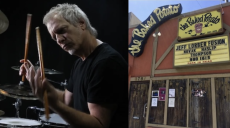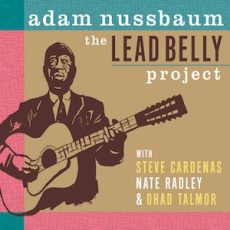
DAVE WECKL QUARTET
Dave Weckl, the St. Louis, Missouri native is a jazz fusion drummer and the leader of the Dave Weckl Band. He was inducted into the Modern Drummer Hall of Fame in 2000.
He was with the Chick Corea Elektric Band from 1985 to 1991. During this time he performed on many albums and also appeared with Corea’s Akoustic Band. He said he “augmented his work with Corea by continuing his session work and appearing often with the GRP All-Star Big Band”.
The Band:
Dave Weckl ~ Drums
Oz Noy ~ Guitar
Chrissi Poland ~ Vocals
Jimmy Haslip ~ Bass
Tickets:
$75.00 1st Set ~ Inside Seating
$70.00 2nd Set Inside Seating
$20.00 Patio Seating The PATIO is a “LIVE VIDEO CONCERT”
you are NOT inside the Club
$4.25 Processing fee on all tickets
More Posts: adventure,bandleader,club,drums,genius,jazz,music,travel

TONY HIGHTOWER
Tony Hightower, an Atlanta-native is a singer-songwriter who has taken up the mantle to be a bridge between R&B audiences and real jazz. Hightower’s parents, vocalist Theresa Hightower and percussionist Ralph Baker highly influenced his path toward becoming an a musician and actor.
Known in Atlanta for singing some of everything, he has performed with Lionel Richie, Jimmy Jam, Terry Lewis, and OutKast. However. The last decade has found him totally devoted to jazz. Tony Hightower’s latest album, The New Standard, is available on streaming platforms.
Tickets:Non-Members ~ $23.50 | Members ~ Free
More Posts: adventure,bandleader,genius,instrumental,jazz,music,preserving,travel,vocal

EMMET COHEN TRIO
Multifaceted American jazz pianist and composer Emmet Cohen is one of his generation’s pivotal figures in music and the related arts. Leader of the trio and creator of the Masters Legacy Series, he is an internationally acclaimed jazz artist, a dedicated educator, the winner of the 2019 American Pianists Awards, and a finalist in the 2011 Thelonious Monk International Piano Competition.
He headlines regularly at Jazz at Lincoln Center, the Village Vanguard, and Birdland, and has appeared at the Newport, Monterey, and North Sea jazz festivals. His artistry has taken him to venues and festivals in over 30 countries. Cohen’s entrepreneurial energies led to his developing “Live From Emmet’s Place,” a live-streamed “Harlem rent party” that unites a worldwide audience via tens of millions of internet views. Cohen has released over ten albums as leader and has performed or recorded with Ron Carter, Benny Golson, Jimmy Cobb, George Coleman, Jimmy Heath, Tootie Heath, Houston Person, Christian McBride, and Kurt Elling.
The Band: Emmet Cohen ~ piano, Yasushi Nakamura ~ bass and Joe Farnsworth ~ drums
Tickets: $45.76 ~ $56.06 | Friday & Saturday 8:30 Shows: Sold Out
More Posts: adventure,bandleader,club,genius,instrumental,jazz,music,piano,preserving,travel

Daily Dose Of Jazz…
Alan Plachta was born on November 30, 1981 and raised in Buenos Aires, Argentina. Recently recorded in NYC his last album “Un viaje” in collaboration with Richard Nant, featuring Luis Perdomo on piano, Sam Sadigursky on reeds, Satoshi Takeishi on drums and Matt Pavolka on bass.
As a composer, arranger and conductor he has worked with the Boris Big Band, Orquesta Sudamericana, Kai de Raiz, and Orquesta de Cuerdas Elvino Vardado in collaboration with Juan Pollo Raffo.
Alan has played and/or recorded with numerous South American musicians such as Roberto Taufic, Hugo Fattoruso, Urbano Moraes, Daniel Maza, Robert Vincs, Alex & Nilusha, Alexandre Ribeiro, Ana Luiza and Luis Felipe Gama, Nicolás Ospina, Celeste Carballo, Ligia Piro, Liliana Herrero, and Cecilia Pahl among others.
A leader or co-leader, he has recorded five albums, the first in 2005. A prolific arranger and producer Nussbaum has collaborated as guitarist and guest arranger for Cambrio de Estacion, Roma, Soy Una Tarada, Desmesura, Este Tiempo, Ensamble Real Book Argentina, and Y De Amor No Supe Nada.
As a guitarist he has recorded ninetten albums and his compositions are included in Real Book Argentina. His educator role has Adam teaching ear training, arrangement, harmony and guitar. He is in charge of the Musical Language´s Technichs at the Tecnólogo en Jazz y Música Creativa career at UTEC.
Guitarist, composer, arranger and educator Alan Plachta continues to explore his music and his teaching.
More Posts: arranger,bandleader,composer,educator,guitar,history,instrumental,jazz,music

Daily Dose Of Jazz…
Adam Nussbaum was born in New York City on November 29, 1955 and grew up in Norwalk, Connecticut. He first played the drums at the age of four, however, it wasn’t until after five years of piano study that he got his first drum set when he was around twelve. He went on to study music at the City College of New York, during which time he also played in local clubs.
1978 saw Adam joining Dave Liebman’s quintet and did his first European tour with John Scofield. He played with saxophonist Stan Getz for a year in 1982. The following year he became a member of the Gil Evans Orchestra, and toured Europe and Japan two years later.
Joining the Eliane Elias/Randy Brecker Quartet, Gary Burton, and Toots Thielemans, by 1987 he began touring with Michael Brecker’s band. He was a member of Brecker’s Grammy award-winning album. Don’t Try This At Home. In 1991 John Abercrombie hired Nussbaum to complete his organ trio and during 1992 Nussbaum was part of the Carla Bley Big Band.
He has kept active in a wide variety of groups and as a freelancer. His quartet recording debut as leader in 2018 was The Lead Belly Project, released on Sunnyside Records.
Drummer Adam Nussbaum continues to perform and record.
More Posts: bandleader,drums,history,instrumental,jazz,music


